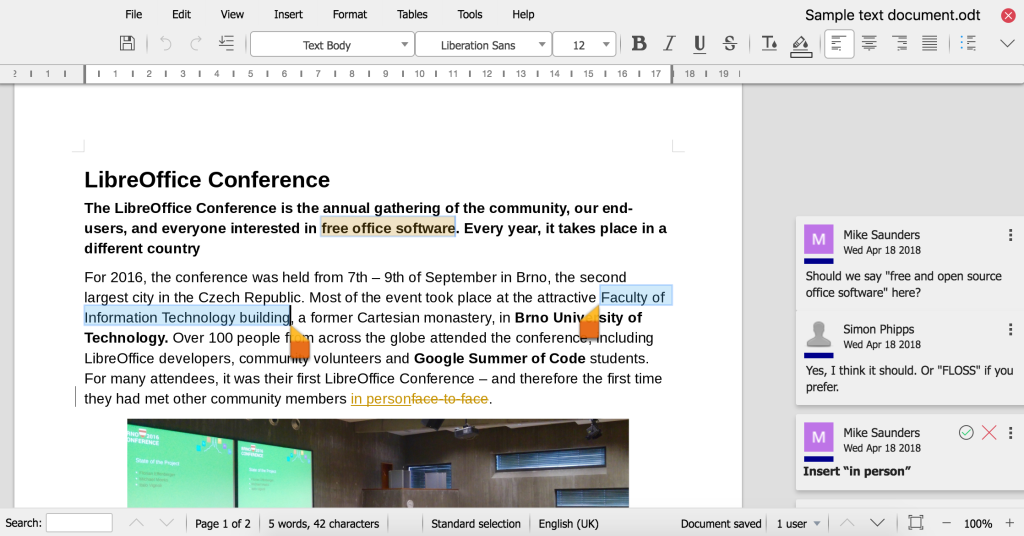Switzerland now officially requires all government software to be open-source. The country has created legislation that mandates all government entities to use open-source software (OSS) in the public sector.
The mandate also requires all public bodies to disclose the source code of software developed by or for them unless third-party rights or security concerns prevent it.
Should more countries especially African countries like Ghana adopt the same approach?
For most African nations, resources are often limited and the need for robust, adaptable technology is high, the argument for OSS is particularly compelling.
Here’s why Ghana and other African governments should consider integrating open-source software into their operations.
The Argument For OSS
In the past, Ghana has tried implementing software in the public sector for citizens to make operations more efficient. The Ghana.Gov seems to be the best case study so far.
But in the past, other initiatives haven’t fared so well. The Office of Registered Companies (formerly Registrar General Department) has failed to launch its online registration system despite stating it would have a new system up and running in Q1 2024.
Although launched with much fanfare, 62% of public agencies are not using the current Digital Address System.
Cost-Effectiveness
One of the most persuasive arguments for OSS is its cost-effectiveness. Governments can save significantly on licensing fees associated with proprietary software.

One of France’s largest cities saved €1 million annually by migrating all its workstations to open-source software, specifically using LibreOffice instead of Microsoft Office.
Open source alternatives offer comparable functionality without the recurring costs, which is crucial for African nations that must optimize their budgets.
A community of developers can identify and fix vulnerabilities swiftly, whereas proprietary software relies on the vendor’s timeline and transparency.
Flexibility and Customization
OSS is inherently flexible, allowing governments to tailor solutions to their specific needs. This adaptability is vital for African countries with unique challenges and requirements that off-the-shelf software may not address adequately.
The Brazilian government’s adoption of open-source software enabled them to customize systems for public administration, improving efficiency and reducing reliance on foreign software vendors.
Promoting Local Tech Industry
Adopting OSS can stimulate the local technology sector by encouraging the development of local expertise and businesses. This, in turn, can lead to job creation and a more vibrant economy, fostering innovation within the country.
Another issue is integrating OSS with existing government systems. Compatibility issues may arise, requiring additional resources to ensure seamless operation across different platforms.
Avoiding Vendor Lock-In
Proprietary software often leads to vendor lock-in, where a government becomes dependent on a single supplier. OSS mitigates this risk by providing the freedom to switch vendors or support services without losing access to critical software or data.
Enhancing Security
With OSS, the source code is open for scrutiny, which can lead to more secure software. A community of developers can identify and fix vulnerabilities swiftly, whereas proprietary software relies on the vendor’s timeline and transparency.

Studies show that the Linux operating system, a popular open-source OS, had significantly fewer security vulnerabilities than proprietary systems like Windows.
Challenges
Of course, OSS is not foolproof. While open source allows for more eyes to spot vulnerabilities, it also requires active and continuous management to patch these vulnerabilities.
Another challenge is legal and compliance issues. Governments must navigate the legal landscape of open-source licenses, which can vary widely and may impose certain obligations on users. Ensuring compliance with these licenses can be a complex task.
Another issue is integrating OSS with existing government systems. Compatibility issues may arise, requiring additional resources to ensure seamless operation across different platforms.
Conclusion
For Ghana and other African governments, the adoption of open-source software offers a pathway to more efficient, transparent, and inclusive governance. It aligns with the broader goals of sustainable development and digital sovereignty, empowering nations to take control of their digital futures.
Catch up on news and other tidbits on our WhatsApp Community Page, Twitter/X, and subscribe to our weekly newsletter to ensure you don’t miss out on any news.










